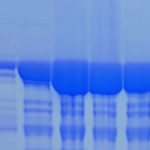Lien vers Pubmed [PMID] – 29974461
Lien DOI – 10.1002/eji.201747388
Eur J Immunol 2018 08; 48(8): 1271-1280
Natural killer (NK) cells and lymphoid tissue inducer (LTi) cells were discovered more than 40 and 20 years ago, respectively. These two cell types were initially studied for their unique functions in the elimination of infected or transformed cells, and in the development of lymphoid tissues. It took an additional 10 years to realize that NK cells and LTi cells were members of a larger family of innate lymphoid cells (ILCs), whose phenotypes and functions mirror those of T cells. Many mouse models have since been developed to identify and isolate ILCs, map their developmental pathways and characterize their functions. Because of the similarity between ILCs and T cells, this exploration remains a challenge. In spite of this, a broad range of mouse models available to researchers has lead to significant progress in untangling the unique roles of ILCs early in defense, regulation of adaptive immunity and homeostasis. Here, we review these mouse models, and discuss their strengths and limitations.


